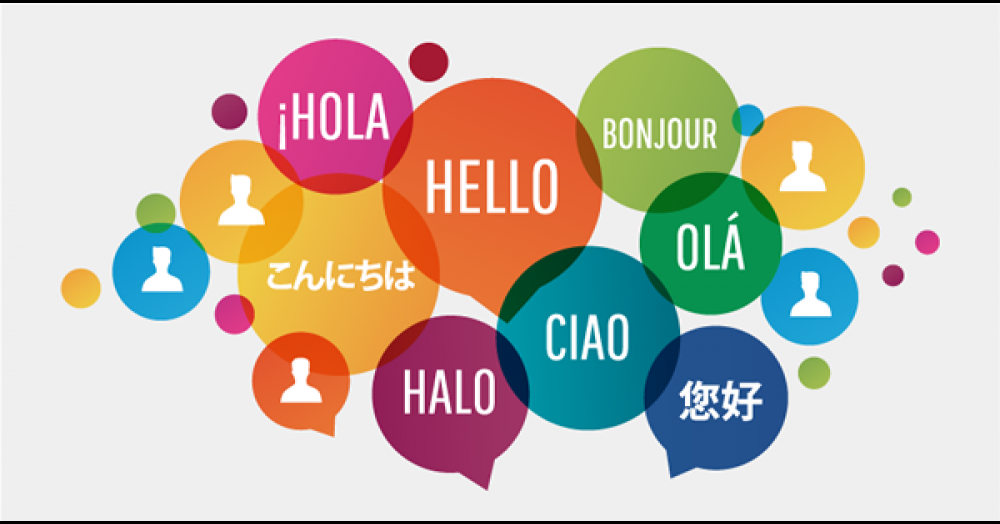
Learning a new language in Lockdown: What is the best tool for you?
Have you always been wanting to learn a new language ? A quick overview of 4 of the best platforms
Since the whole “working from home” happened, we all realised we had much more time for ourselves, and the common reaction was to think “I want to get better at this” or “I want to spend more time doing that” or “I need to learn a new skill”.
And if you’ve realised that learning to play violin was not going to be an easy task with your neighbours at home all day, this article might give you some ideas on what you can do that won’t drive your entourage crazy…
London is full of different cultures and it’s not uncommon to find people speaking several languages. A study shows that 250 languages are spoken in London only, making it the most linguistically diverse city in the world!
Now is the time to belong to the bilingual or multilingual part of the population by adding a new language onto our CV! But where to start?
As FluentU.com explains it really well in this article: https://www.fluentu.com/blog/how-to-learn-foreign-language/ , it stars with the right “mindset”.
This basically means that if you think really hard that you are very good at languages and convince yourself that you will be fluent in only a few weeks of intense training, there’s a good chance you’ll learn very quickly.
Your mindset will apparently also determine the best mean for you to use to learn that new language. If you feel like you are ready to make significant progress very rapidly, then you might want to go for something quick and easy (and free). If on the contrary you tend to think that the only way to learn a new language is to commit long term and go through every step in depth (and have a test at the end of each) then you will choose to spend more money and will probably go for an online class you need to attend several times a week.
In here, we will go through a few of the best tools available online so this will hopefully help you make your choice!
Babbel: Best for specific learning
Between £4 and £8 per month depending on contract length)
With only 14 languages available, Babbel is not the app offering the most options. It offers a free version, comprising 40 classes which will allow you to get to a beginner + level. The real benefit of Babbel lies in the specific packages designed to strengthen a specific skill such as grammar or vocabulary. This is very helpful when you already feel confident in a language and want to improve in a chosen area.
If you’re almost convinced, try your free lesson here: Free lesson on Babbel
Duolingo: Best for your wallet
FREE (Duolingo Plus subscription from £6 / month that removes adverts and lets you download lessons)
In those uncertain times, the cost of learning a new skill is also to take into account, especially if you are unsure of your commitment. Duolingo is probably the best option when it comes to its free version as you still have access to all levels and all lessons. Duolingo has over 30 different languages available, and it is also possible to learn from another language than English. For example, if your mother tongue is Turkish, you will be able to learn German from Turkish! Obviously there are still much more options from English than any other language. Duolingo has probably the best offer in terms of diversity of idioms and you will be able to find Hebrew, Swahili, Welsh and even High Valyrian!
ITalki: Best for immersive experience and human interaction!
Various rates (£7 to £60 per hour depending on teacher’s qualifications)
Founded in 2007, ITalki is a website (there is also an app) that connects learners and teachers together. It is the best online tool available to improve conversation skills whilst enjoying social interaction.
Obviously this means you can only use it in the right environment, as opposed to an app on your phone where you can practice on the go or in public places.
ITalki gives you access to hundreds of languages, with private lessons on a one-to-one basis only. You can choose your teacher’s features: their level of professionalism, if they are native speakers, how many lessons they have taught, their background etc…
Your decision might also depend on how much they cost! There is usually a price per hour, and some teachers might also have packages in place: mini-lessons on specific topics for example, or a special course on business English etc..
The biggest benefit of Italki is probably its community feature. It allows you to engage with other learners and teachers, ask specific questions, get small paragraphs corrected by native speakers but also connect with others who would have the same native and target languages as you, and learn together!
Mindsnacks: Best for fun (and kids)!
Free download, full version for £4 (gives access to more games, challenges etc…)
Only 7 languages are available on this app, but it is perfect if you have trouble concentrating, or if the sound of “language lessons” scares you a little.
This app combines perfectly the gaming experience (Angry Birds style) with the language learning process.
Each language comes with mini games, all designed to make you improve your grammar, vocabulary, practice or listening skills. The games are short and simple, with different levels to complete, and users can keep track of their progress on the main dashboard.
The bonus of Mindsnacks is that if you are bored of learning a language, you can switch to maths or geography as there are plenty of educational content, always in the game format!